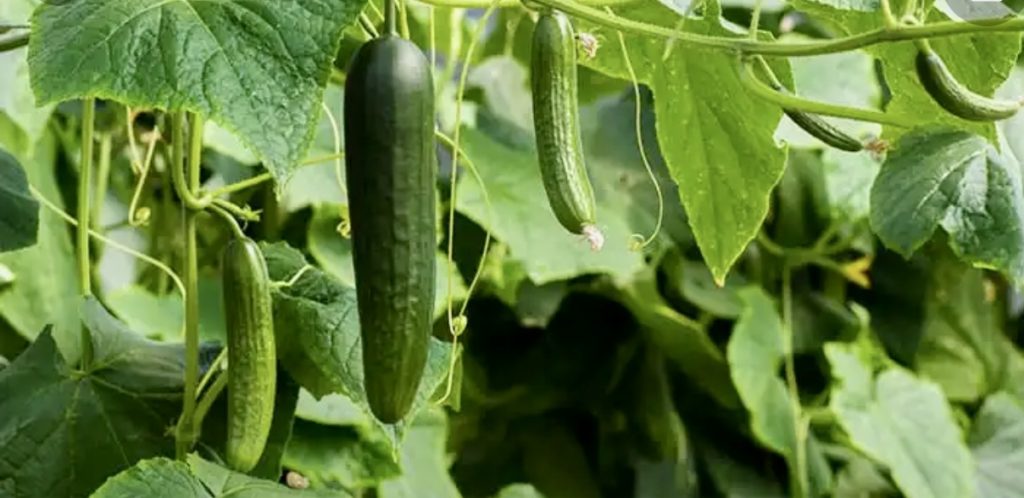
In the vision of Isaiah, recorded in chapter 1 of the prophecy of Isaiah, the kingdom of Judah is beset by war,
fiery destruction, crime, and sickness with no cure. Strangers move in from other countries; people flee for
their lives.
Amid this tragedy, verse 8 contains nine Hebrew words.
Bath–a woman, a daughter.
Tsion–a conspicuous guiding pillar or sign [in modern terms, a flashing billboard].
Yathar--excels in preserving.
Cukkah--a [feminine] small building.
Kerem–garden of vines.
Mluwnah–[feminine] building to stay at night.
Miqshah–garden of cucumbers.
Natsar–to protect and preserve.
‘iyr–a city or town.
Then, as in the time of the Prophet Isaiah, and now, Hebrew words with similar meanings are paired for emphasis.”Pay attention to this as a sign of what to do: a woman, a daughter, excels in preserving; in her she-shack,
surrounded by a garden of vines, she stays all night to preserve a garden full of cucumbers and protect and
preserve her town.”
The cucumbers ripen all at once. They call to her, “Pickle me! Pickle me! I am the food you and your town will
need for the next year!” The few remaining in town are certain there will be no next year. The daughter of Zion
stops everything else and pickles cucumbers. She picks them, washes them, crowds them vertically into every
pot she owns, and covers them with salt, herbs, and water to ferment into pickles. She and her town will survive
on flat-bread, water, and cucumber pickles. She allows a few cucumbers to grow large, and when they and their
vines dry, saves them for the next year’s seed. The daughter of Zion pays attention to what is needed during
disaster: a garden of cucumbers must be made into pickles, food and normalcy that will preserve the town and
save lives.
Right now, refugees are moving into gateway communities close to Sligo Seventh-day Adventist Church. Many
have fled for their lives, leaving war and natural disasters, coming as strangers to be our neighbors.
Yes, our nation, state, and communities are also in trouble. The pandemic disrupts our routines for yet another year.
The smoke from western states hazes our skies. Many of us have families affected by hurricanes. Crime keeps
souring our cities. Many workers gave up seeking jobs that pay enough to live on; some lost their homes. Few
companies are unscathed by death and disease and fractured supply chains. Normalcy is in short supply.
We members of Sligo are a flashing billboard, a conspicuous guiding pillar, demonstrating what to do in crises. We members of Sligo show how to preserve normalcy in abnormal times. We worship safely in a church tucked into the corner of a small university campus: a few hundred in-person, but by the thousands online. We members of Sligo know how to be thankful and welcoming. This week, let us each purchase something from a local business. Let’s spread random thank you’s to school bus drivers, fast-food workers, package deliverers, police officers, grocery store clerks, trash haulers, teachers, and anyone involved in healthcare. Let’s connect with distant family and friends.
We members of Sligo may not be surrounded by a garden of cucumbers urgently needing to be pickled, but we
do have, among us, items urgently needed by our newest neighbors and others affected by current crises. We
can provide hygiene items (soap, shampoo, washcloths, towels, for example) and laundry soap pods that are
urgently needed for distribution by Adventist Community Service of Greater Washington. [The Center is located at 501
Sligo Avenue in Silver Spring, Maryland. Its telephone number is (301) 585 6556.]
Fellow Sligo members, thank you for being preservers.
(photo courtesy of Gardening Channel)